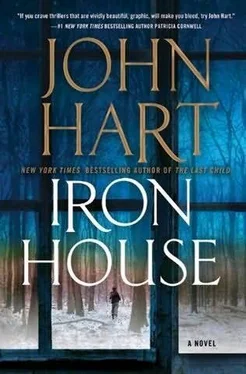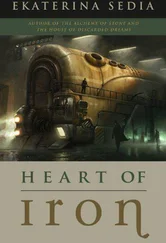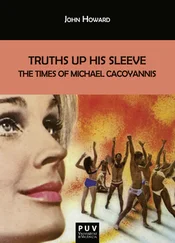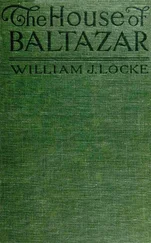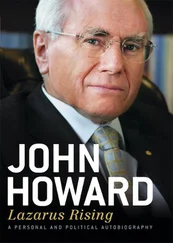John Hart - Iron House
Здесь есть возможность читать онлайн «John Hart - Iron House» весь текст электронной книги совершенно бесплатно (целиком полную версию без сокращений). В некоторых случаях можно слушать аудио, скачать через торрент в формате fb2 и присутствует краткое содержание. Жанр: Детектив, на английском языке. Описание произведения, (предисловие) а так же отзывы посетителей доступны на портале библиотеки ЛибКат.
- Название:Iron House
- Автор:
- Жанр:
- Год:неизвестен
- ISBN:нет данных
- Рейтинг книги:5 / 5. Голосов: 1
-
Избранное:Добавить в избранное
- Отзывы:
-
Ваша оценка:
- 100
- 1
- 2
- 3
- 4
- 5
Iron House: краткое содержание, описание и аннотация
Предлагаем к чтению аннотацию, описание, краткое содержание или предисловие (зависит от того, что написал сам автор книги «Iron House»). Если вы не нашли необходимую информацию о книге — напишите в комментариях, мы постараемся отыскать её.
A dark, atmospheric thriller with a plot that will keep you guessing until the last moment.
Iron House — читать онлайн бесплатно полную книгу (весь текст) целиком
Ниже представлен текст книги, разбитый по страницам. Система сохранения места последней прочитанной страницы, позволяет с удобством читать онлайн бесплатно книгу «Iron House», без необходимости каждый раз заново искать на чём Вы остановились. Поставьте закладку, и сможете в любой момент перейти на страницу, на которой закончили чтение.
Интервал:
Закладка:
“Thank you, Doctor. No.” She felt her chin rise, and briefly entertained the notion of telling him the truth; but he would dismiss as a misguided boast her claim that he’d never met a stronger person than she. He would make polite noises, and when he saw the senator, he would shake his head and pretend to keep his confidence. But their eyes would meet, and in that touch would be a faint smile shared at the vanity of women. So, she kept the truth as her own. She did not tell the doctor she had seen things that would crush his heart, done things that would break him at the knees.
“I’m fine,” she said.
And when he opened his mouth to disagree, she turned and walked away.
CHAPTER TEN
As large as the house was, and as grand, it was not technically Abigail’s home. The main residence was in Charlotte, a turn-of-the-century mansion on two acres in Myers Park. This was supposed to be their summer home, but Abigail loathed Charlotte. It was too large, its people too interested in the doings of their senator and his wife. As life unrolled behind her, Abigail found herself drawn more and more to the space and silence of Chatham County. Over the years, her time there grew longer and more certain, until now, she hardly left. She lived there with horses and privacy and her son.
It was almost ideal.
She swept down the long hall to the suite of rooms she’d taken as her own, where she showered, changed, and restored her face to its normal state of near-perfection. In a ten-foot mirror, her reflection was that of an elegant woman in peak physical condition. She turned once, found herself acceptable, and then went to Julian’s room on the third floor. It filled the top corner of the north wing, an extravagant space whose windows faced downslope and across the forest canopy. In spring, the view was of rolling green, an inland sea that in the fall became red and yellow and orange, an ocean of fire that died to brown and fell away.
In the door, she stopped, hesitant. The room had ceiling-to-floor bookshelves that held framed photographs and twenty years of reading. A half-dozen easels stood against the far wall, large sketch pads propped open to show the pictures Julian had been working on: a forest scene, a lake in moonlight, characters for a new book he was considering. Shotguns and deer rifles stood, unused, in velvet-lined cases. They were gifts from his father, and from admirers of his father, expensive steel touched with fine dust; but Julian had never killed anything in his life. He was a gentle man, but a man nonetheless, and the room reflected this duality: dark rugs and expensive art, children’s books and silent guns. It was a man’s room, and a boy’s; and standing in the doorway, vision pricked by tears, Abigail saw the day they’d brought Julian home. He’d been so small and frightened, so lost without his brother.
How many boys live here, he’d said.
Just you.
He’d stared at the room for a long time, his dark eyes restless as he’d looked out the window at the forest canopy, the long miles of deep and secret green. His fingers were small on the windowsill, his chin tipped up as he stood on tiptoes to see out.
It’s so big.
Do you like it?
He’d thought for a long time, then said: How will Michael find me here?
That was the question that made her cry.
Abigail stepped across the threshold. She ran a finger along the spines of books, lifted a photograph, put it down. She was restless, worried in a way she’d never been, so that when she turned and found her husband in the open door, she jumped. She’d not heard a step, and as large as he was, that fact surprised her.
“About what I said.” The voice was his penitent one. “I will, of course, put Julian first. I hope you know that.” His gaze ran the length of the room, and it was impossible to hide his distaste. As a politician, he was conservative in all things. As a man, he believed in manly pursuits. People like Julian were not his cup of tea, and Abigail always suspected, deep in her heart, that the senator was pleased that Julian, as a son, was only adopted.
Less of an embarrassment that way.
Less of a liability.
Truth was, the senator had never forgiven Abigail for her inability to conceive. He’d wanted one of each, a boy and a girl, both well mannered and sharing their mother’s photogenic qualities. Adoption was a hard-fought compromise, and Julian a massive disappointment. In the end, she’d won the argument on one basic premise: adoption-especially of older, unwanted children-would show he was a man of heart and conscience. His polls were lowest in the mountains. He’d thought about it, nodded once. And that was that.
The senator stepped to the nearest easel and began flipping pages, looking first at one drawing and then another. “About Julian,” he said. “I was out of line. I’m sorry.” He flipped a final page and considered the drawing there: a half-dressed girl with leaves in her hair and eyes like black smoke. “This one’s unexpected,” he said.
Abigail glanced at the drawing; a beautiful girl, provocatively drawn. “Why?”
He shrugged. “It’s so sexual.”
“He’s a children’s author, not a child. He’s had girlfriends.”
“Has he?”
“Must you be so dismissive?”
The senator flipped pages until the drawing was covered. He studied Abigail’s face, his own features sad and utterly convincing. “Give an old man a kiss.”
His eyes broke from hers, and she knew the interruption was purposeful. She extended her cheek and he kissed it, his lips dry and cool. Stepping back, he looked into the room. “This place is a mess.”
“I’ll speak to housekeeping.”
“That’s my girl.”
She watched him go, then began to pick up the room. She made the bed, stacked books, and gathered coffee cups. Finally, she lifted Julian’s tuxedo and carried it to the closet. It smelled of cigar smoke and aftershave. She smoothed it once, and in the pocket found a photograph. The girl was a waif: nineteen years old and small enough to be elfin. She stood on a sagging porch, the house behind her barely painted. Wild, blond hair framed a face that would be striking in another context; but she was barefoot and dirty, her eyes large over hollow cheeks, her mouth an angry line as she glared at the camera. She wore faded cutoffs that rose too high on her legs, a tank top that was too thin and tight for the breasts that pushed against it. Her hands were shoved into her pockets hard enough to push the shorts low on her hips and expose the blades of her hipbones, the plane of tight skin between.
She was burned brown by the sun.
The yard was dirt.
Abigail had not seen the girl since she was a child, but she recognized the house. With a sickening feeling, she turned to the easel and flipped pages until she reached the charcoal sketch of the young woman, nude in the woods. She looked at the drawing, then at the photograph. She stepped closer and held them side by side. The drawing was the work of skilled hands, the young woman made even more attractive, her face at home in the forest, eyes slanted and deep, leaves twined into her hair. The sketch showed the curve of her hips and breasts, eyes that were entirely too knowing.
“Oh, no.”
Abigail stared hard at the drawing, a twist of nausea in the lowest part of her.
“No, no, no.”
She left the room at a near-run, the photograph bent double in her fist. Outside, the rain had died to mist. She found the Land Rover where she’d left it, cranked the engine, then checked the loads in the pistol and pointed the vehicle toward the rear of the estate.
“No, no, no,” she said again.
And the forest deepened.
In a lifetime of conflict, machination, and political intrigue, there was one persistent thorn in the side of Abigail’s husband. On the back side of his four thousand acres was a sixty-acre inholding, an island of old-growth pine that had been owned by the same family since the 1800s. The tract was rugged and untouched, a series of sharp hills and ravines with a gravel road leading to ten acres of flat ground and a house that had stood since before the Civil War. The land came with an easement across the back of the estate grounds, and in spite of the senator’s offers, the lady who owned the land refused to sell. He’d offered five times its value, then ten, and twenty. He’d lost his temper, and then things got complicated.
Читать дальшеИнтервал:
Закладка:
Похожие книги на «Iron House»
Представляем Вашему вниманию похожие книги на «Iron House» списком для выбора. Мы отобрали схожую по названию и смыслу литературу в надежде предоставить читателям больше вариантов отыскать новые, интересные, ещё непрочитанные произведения.
Обсуждение, отзывы о книге «Iron House» и просто собственные мнения читателей. Оставьте ваши комментарии, напишите, что Вы думаете о произведении, его смысле или главных героях. Укажите что конкретно понравилось, а что нет, и почему Вы так считаете.
